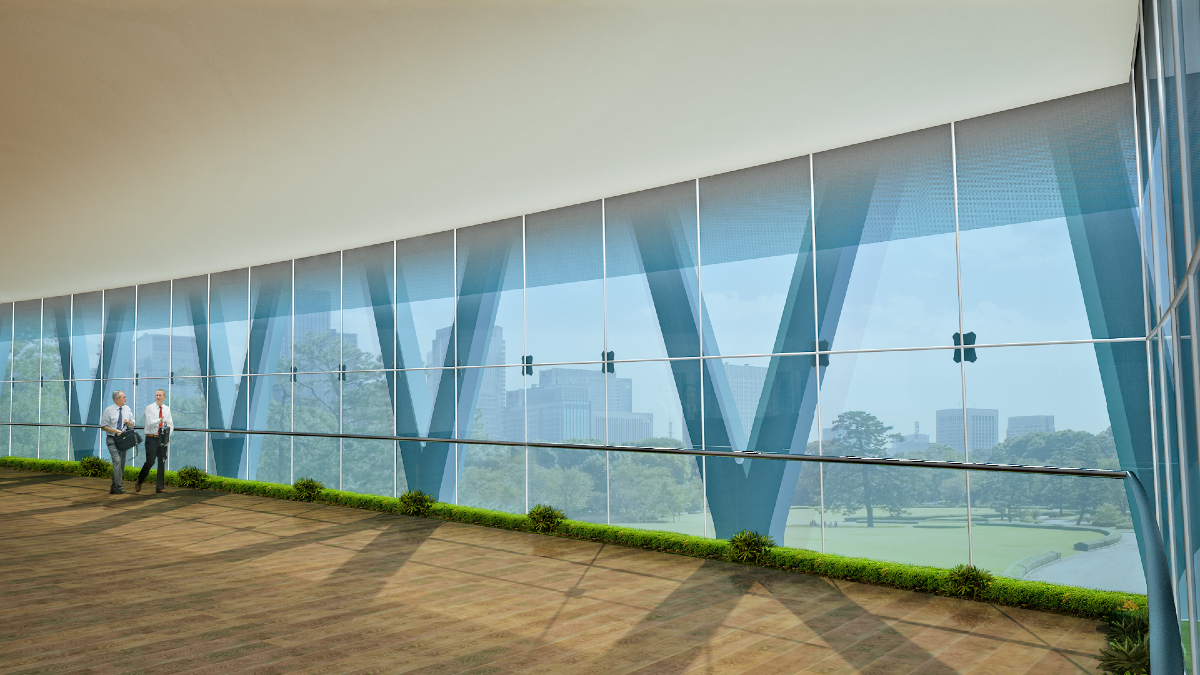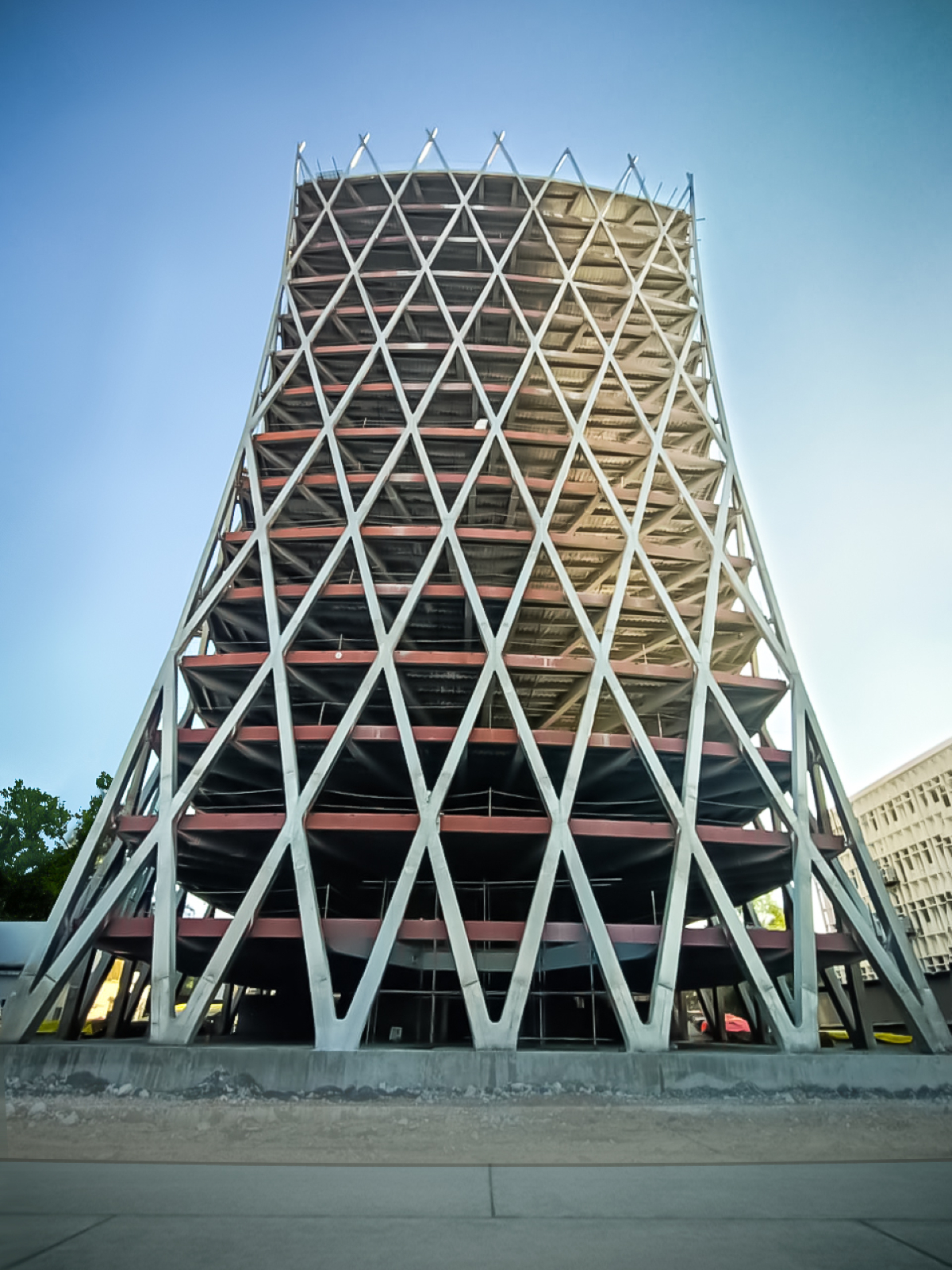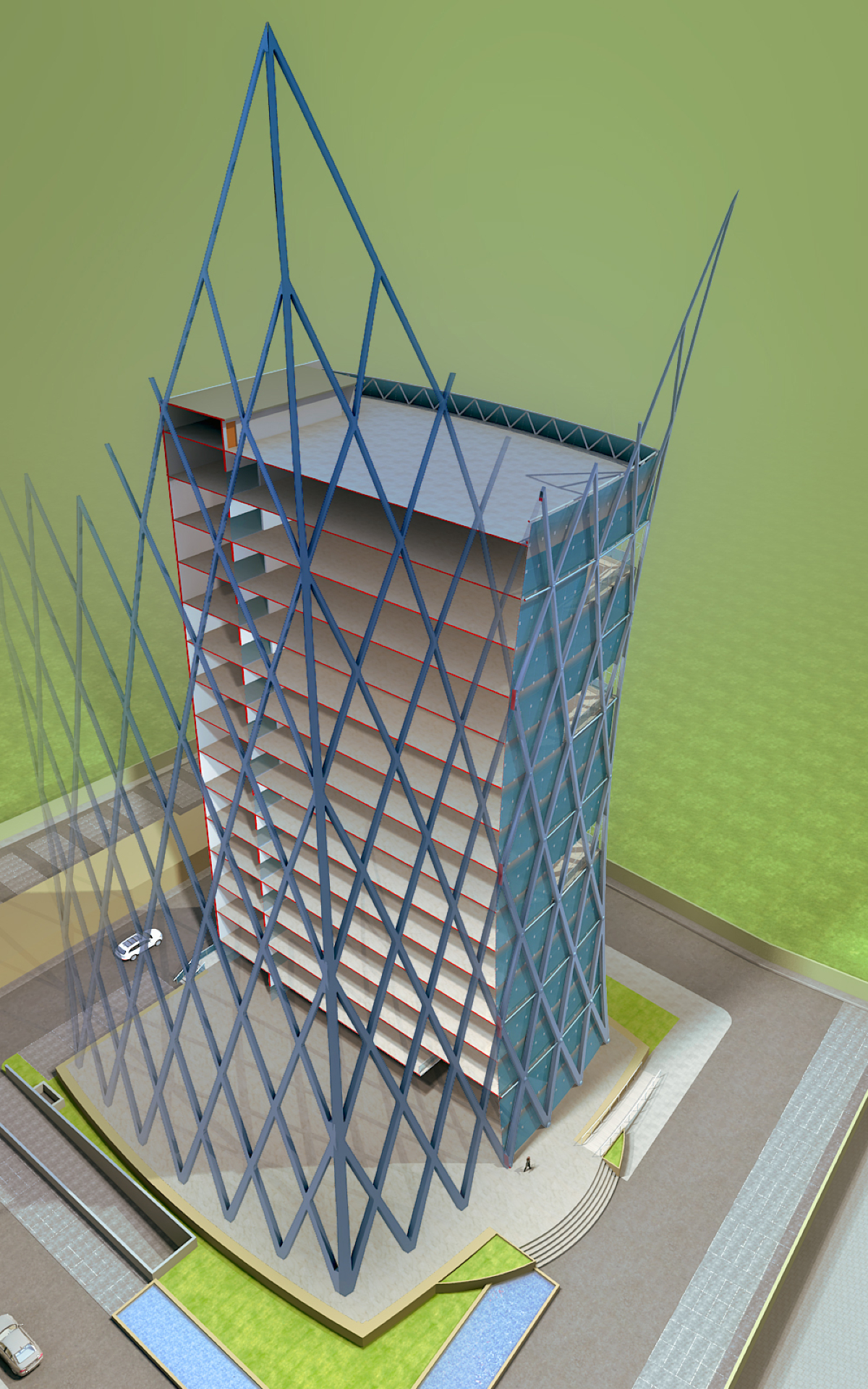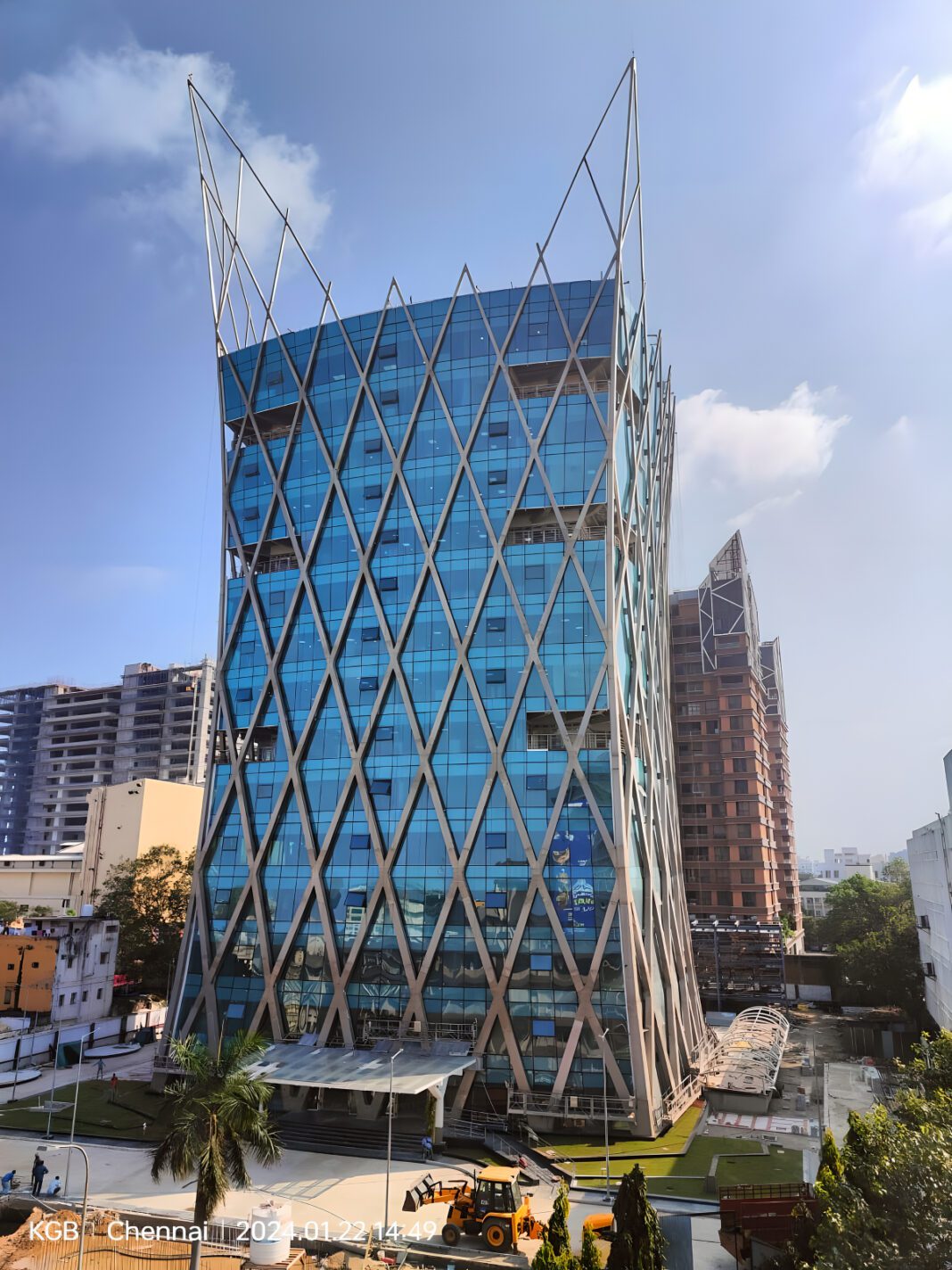The headquarters of United India Insurance Corporation Ltd in Royapettah, Chennai, stands as an iconic structure, featuring column-free floor slabs and expansive, unobstructed views. This design responds to the client’s vision, which called for open, flexible interior spaces and panoramic views. To achieve this, the foundation was kept minimal – an uncommon approach for taller buildings, which typically require extensive foundation work. Rather than using larger concrete columns or a raft foundation, the design team opted for steel columns.
Dhananjay Dake, Creative Director at Construction Catalysers Pvt Ltd, highlights that the building, situated in a coastal region, incorporates steel structural elements to ensure durability and reduce maintenance. Located along Chennai’s prominent Mount Road, this building not only enhances the city’s skyline but also serves as an inspiration for future modern architecture. Additionally, the structure’s unique form and diagrid system optimise steel consumption, minimise waste, and allow for the steel to be reused when the building is eventually dismantled.
 Crafted Columns
Crafted Columns
The initial brief provided by the clients was to create a structure with open, flexible interior spaces and panoramic views. Rather than choosing larger concrete columns or a raft foundation, the design team opted for steel columns. And so, the innovative diagrid system along the building’s periphery incorporates steel columns with cast stainless steel junctions members, which enabled expansive column-free spaces.
Internal support was reinforced by a concrete service shaft located at the rear side of the building, which enhances the structure’s support while enhancing earthquake stability. This shaft houses essential service lines, staircases, and elevators, protecting them from fire and improving overall structural stability during such events. The foundation of this building was kept minimal, as taller structures typically require more foundation space.
The diagrid frame plays a key role in enhancing the building’s uniqueness since the tapering members vanish into the skyline. The resemblance of this structure to a torso makes the building look tall and sleek standing with elegance. The building adheres to strict structural norms and safety measures, as stability cannot be achieved without them. The necessary precautions were taken, incorporating higher standards. Materials were thoroughly tested for strength, leading to the recommendation of alloy or stainless steel compositions.

Additionally, the complex junctions for this structure were created by computerised machining and the SS casting process, a relatively new technique for main structural frames in India. Steel, being the ideal material, enabled the structure to be executed with high precision. Moreover, incorporating sustainable design practices and reducing the dead weight by nearly 25 per cent compared to conventional designs, helped minimise the embodied energy required for the structural framework’s production. This would allow recycling of the entire frame if the building is demolished in future.
A Green Goal
Using concrete for such structures requires an excessive amount of cement, aggregate and steel. The tapering framework reduced deadweight on foundations and optimised material usage, enhancing efficiency and environmental friendliness. Steel has been used efficiently in this project, with customised elements to achieve the sleek and elegant appearance of the building. It is recyclable and durable when being stainless steel alloy, which withstands corrosion, wind loads, and seismic forces while maintaining stability.

Achieving the seamless curved surface for the facade was challenging, and it was addressed by prefabricating complex junctions and structural framework. The use of prefabricated members and junctions helped significantly reduce the need for manual labour, making the assembly process more efficient with the help of cranes, wire ropes, and other equipment. Temporary scaffolding was used until all components, including the concrete slab, were properly aligned and secured before being removed. Additionally, the inner column-free spaces allow for flexible layouts, making it feasible to remaster interior spaces as needed. The design already accommodates adaptable interiors, with no plans for expansion.
Fact File
Project: United India Insurance Co Ltd (UIIC) Headquarter, Chennai
Client & Project Management: NBCC
Architect: DK Sharma & Associates
Structural Consultant: Vector Designs
Fabricator: Construction Catalysers Pvt Ltd, Pune
Supplier: JSL
Tonnage: 450 MT
Status: Completed
Quote
“We enjoy taking on new challenges and strive to create iconic buildings that make a statement in the skyline. This project was challenging to minimise material usage while maintaining a sleek and torso-like form that gave an elegant appearance to the building. Its form features a doubly curved surface which provokes to use diagrid system effectively to follow such a complex geometry.”
– Dhananjay Dake, Creative Director, Construction Catalysers Pvt Ltd





